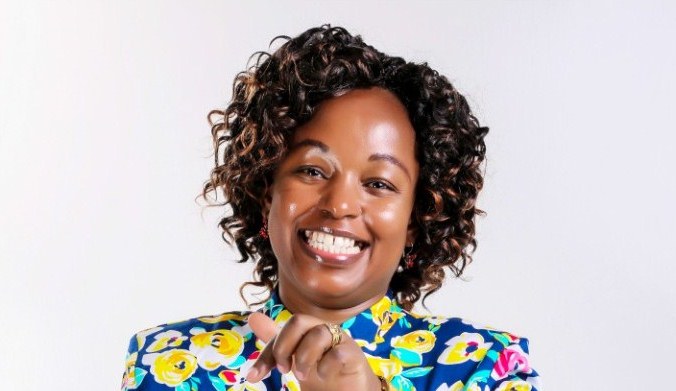Sanitary Pads in Kenya: In mid-2013, Florence Njuguna walked out of her job as a shop attendant at a Nairobi-based supermarket. She had been working as a shop attendant at the cosmetics section in the supermarket. “I earned a monthly salary of Sh. 15,000,” says Florence, a mother of three who is in her late thirties.
Every day for 4 years, she would leave home at 6am and return after 7pm. This exhausted her. “Apart from the small salary, I was not comfortable with the working hours which denied me ample time to be with my family,” she says. However, with jobs hard to come by, Florence couldn’t afford to quit without a better alternative. “I was convinced that I needed to quit, but where would I step out to?” She started saving Sh. 3,000 every month in a sacco. “I also started piling up my savings in my chamas where I contributed a minimum of Sh. 1,000 at every meeting. It wasn’t easy, though, especially because my income was quite small.”
Apart from saving faithfully, Florence began researching on the kind of business she could start and its viability in the market. Apparently, she couldn’t afford to drown her savings down the drain by investing in the wrong business idea. By the time she quit, Florence had saved Sh. 200,000.
“By this time, I had developed an idea which was inspired by personal experiences. I realized that whenever I got my monthly periods, I changed pads regularly, to a point of using numerous pads in a day when I menstruated heavily,” she says. “Sometimes I would wear certain pads only to realize that they leaked, and this triggered me to start pondering what would make the pads better.” She started poring through online materials on the different varieties of pads that are used in numerous markets around the world, and what made each brand different from the other. “In the end, I found out that pads that were most comfortable and didn’t leak had a chip at the centre,” she says, adding that it was this realization that gave birth to her sanitary pads business, Levo Cosmetics.
How I built multi-million Bountiful Safaris with Sh. 6,000 salary
However, the Sh. 200,000 she had saved was not enough to get her started. She approached a bank and got a loan of Sh. 300,000. “With a total of Sh. 500,000, I imported my first stock of 10,000 pads which were manufactured in China,” she says. Unfortunately, Florence got the induction of fire into the world of business. “I sold each for Sh. 100 and ended up incurring a loss of Sh. 40,000. They were a tough sell especially since the market already had pads that were selling at half my price.” To complicate her marketing strategy, she did not have central point of sale where customers would go for her products. “It took me one year to offload the stock,” she says.
However, the loss did not deter her. “I looked at what I’d executed badly and found out that my marketing was off the mark. I had not created enough awareness on why my potential customers should opt for my pads instead of the regular sanitary towels.” She embarked on a vigorous marketing within her social circles, got approvals from the Kenya Bureau of Statistics and launched her second batch of pads. “I sold the second stock in 6 months and returned a profit of Sh. 45,000,” she says. The longer it took to offload the pads, the thinner her profits would get. But there was no stopping her. “The profit, no matter how small was a step in the right direction,” she says.
UTI and Sanitary Pads in Kenya
To add value to her commodity, Florence says that her company has since developed a urinary tract infection self-testing kit, and panty liners which sell together with the pads. “Before I introduced these additional products, I started by giving them out for free to my close clients in a bid to get customer feedback,” she says. “I only started packaging them together with the pads when I got sufficient feedback that they were valuable.”
How does she market her products? “My marketing has revolved around hygiene with or without menstruation, and the more awareness I have created, the larger my client base has grown,” she says. Apart from selling her pads through retailers, Florence says she has established a network of customers and referrals through women gatherings. She is now able to ship stocks of over 12,000 pads and self-testing kits without injuring her operational capital.
Looking back at her journey in business, Florence says that she would have closed shop were it not for resilience and paying keen attention to customer feedback. “In any business, it is true that the customer is king. What your customer feels about your product could break or make you,” she says. “Personally, I use my customers’ feedback to either enrich or rectify my products to suit their needs.” Sanitary Pads in Kenya.
This feature was first published in the Saturday Magazine.









